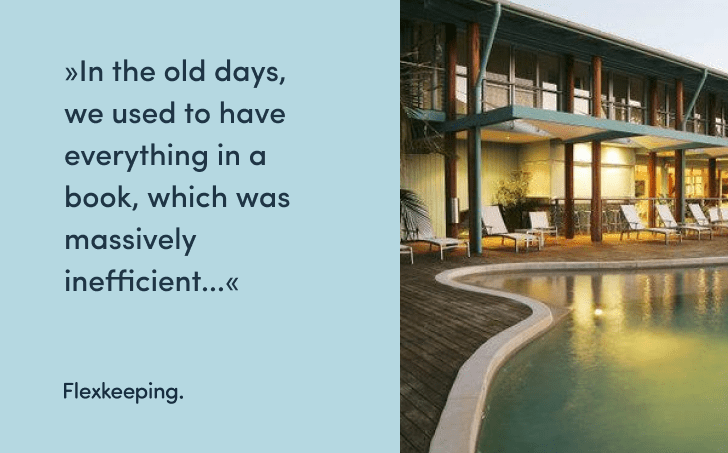Delivering a contemporary form of luxury to cost- and style-conscious modern hotel guests is challenging, especially when you have to deal with staff shortages. And yet Ruby Group, a new generation of design hotels and co-working spaces, does it effortlessly while breaking new ground with its lean luxury philosophy.
Today we speak to the man overseeing the operations of its growing portfolio: Boris Simm, Group Vice President of Operations and Member of the Executive Board at Ruby Hotels.
Driven by his passion for innovation in the hospitality industry, Boris understands that happy staff is crucial for delivering the highest standards of quality and service. He shares his insights about staff shortages and Ruby Group's revolutionary approach to hiring and keeping staff, which gave extraordinary results rarely seen in the hotel industry.
Watch his video interview below or keep on reading if you prefer the written word.

By loading the video, you agree to YouTube's privacy policy.
Learn more
How did Ruby Hotels deal with staff shortages in the hospitality industry?
Staffing issues are plaguing the hospitality industry, and there are no quick or easy fixes for this problem. Our long-term strategy was to understand why so many people didn't come back to work in hospitality after the lockdowns ended. The answer crystallized quickly: younger generations seek a better work-life balance. They want to work less, travel more, and prioritize free time. So when we faced staffing issues, we started looking into ways to provide just that to our team members.
And you came up with a 35-hour work week.
Exactly. Our team members now work 35 hours per week while receiving the same salary. Depending on the country, it translates to a 12-20% salary increase and more free time. It's worth noting that we are entirely flexible when it comes to organizing - some people spend five days per week working seven hours, while others combine hours differently throughout the week.
This approach is super useful for us as a business too. We can schedule team members according to our business needs and eliminate idle time. When we first introduced this model, we expected chaos and thought we'd need to hire more people to cover the missing times, but it turned out we needed an average of one and a half heads more.
How did your team react?
They love it. The feedback has been great, especially regarding flexibility. On average, everyone has a paid day off per week. The logic was to adapt to people's needs instead of making them adapt to our profit targets. Once you do that and your employees see you care about their well-being, loyalty comes naturally. And profit is quick to follow.
But you didn't stop there. Your benefits package includes so much more.
A shorter work week was just a part of a huge benefits package we rolled out. It included profit sharing, allowances for public transportation, and fitness passes. We proactively undertook this massive project, so it came unexpectedly for the team members, but of course, they loved it. Our goal was to walk the talk and become a better employer who knows how to address staff shortages. The results were twofold: keeping our exceptional employees and attracting new top talent.
What about hotels that still resist this people-centric approach to business?
They're making a mistake. Many big companies are still focused strictly on the bottom line, which is why they treat team members as tools for achieving their business goals. If that mindset doesn't shift to putting much more effort and focus on fulfilling people's needs, sustainable success will be impossible. Yes, it's a considerable investment, but it pays back sooner than expected for visionaries considering mid and long-term business goals.
And how is technology helping you transform your operations?
Ruby is a lifestyle brand, and as such, it relies on efficiency. We try to automate processes using technology and digitize the guest experience wherever possible. With the growth already in play for the group, streamlining our operations was essential for handling new hotel openings on such a broad geographical roadmap.
Technology makes operations much more efficient, especially when combined with the PMS, as it automates or eliminates tedious and even some unnecessary tasks, such as repeated room inspections. We can monitor the performance of our team members and provide support when needed. I cannot stress this enough: when tracking your staff's performance, look for the potential to improve instead of focusing on failures and punishment. That's how you build trust and motivation.
It's imperative in housekeeping, where you only see the staff briefly. If you don't dive deep into your housekeepers' performance details, you'll only assess them based on the room's cleanliness. That would be a mistake because housekeeping data is complex, and dependent on time, room occupants, etc. Instead, understand all aspects of your operations and appreciate the people who work for you. That is the future of hospitality.



